APPAM Policy Council and Leadership Election
The Policy Council is APPAM's governing board and is responsible for setting policy and creating strategy for the Association. It currently consists of four elected cohorts serving staggered, four-year terms of office. The APPAM officers (ex officio voting); the APPAM Executive Director and the Editor of JPAM (ex-officio non-voting) comprise the Executive Committee; the Executive Committee is also part of the Policy Council.
Elections for the new four-person cohort on the Policy Council, President-Elect, Vice President and Treasurer begins on Thursday, December 19th, 2024 at 12:01 AM ET. The election will run until 11:59 PM Eastern Time on January 18th, 2025. Ballots will be emailed to all APPAM members in good standing.
Among the four person cohort for the Policy Council, one is a researcher in a non-academic setting; one is an institutional representative elected by the Committee of Institutional Representatives; and two are researchers in an academic setting, one of whom is an early career researcher. All will serve four-year terms.
Finally, one student is appointed annually to serve a two-year term on the Policy Council. There are two student seats on the Board and one new student is selected for service each year. Institutional Members may each submit one student nominee for consideration.
You can view a list of the current APPAM Officers, descriptions of each officer position, and the current APPAM Policy Council Members.
How to Vote
Voting for the next Policy Council cohort, who will serve from 2025 through 2028, and for Vice President and Treasurer, who will serve from 2025 through 2026, begins December 19th, 2024 at 12:01 AM. The election will conclude at 11:59 PM, Eastern Time, on January 18th, 2025.
Follow the links below to the list of all nominees on this year's ballot. All current members will receive email instructions on how to vote on December 19th and will receive periodic reminders to vote until the January 18th deadline. If your membership has lapsed, you will not receive an e-mail with voting instructions. If you want to check the status of your membership, please do so here. If you have not received an e-mail and feel that your membership is current, please contact Tara Sheehan.
The following is a list of nominees for APPAM's Officer Positions of Vice President and Treasurer. Please note that President-Elect, Kosali Simon, was appointed to her position by the APPAM Policy Council and voted in by acclamation at the 2024 Fall Research Conference Membership Meeting. Her statement is being presented for transparency and completeness and is included in the ballot, although she is running unopposed.
President-Elect Nominee
Uncontested; serves a 1-year term, automatically becomes APPAM President after the 2025 Fall Research Conference.
Kosali Simon, Indiana University
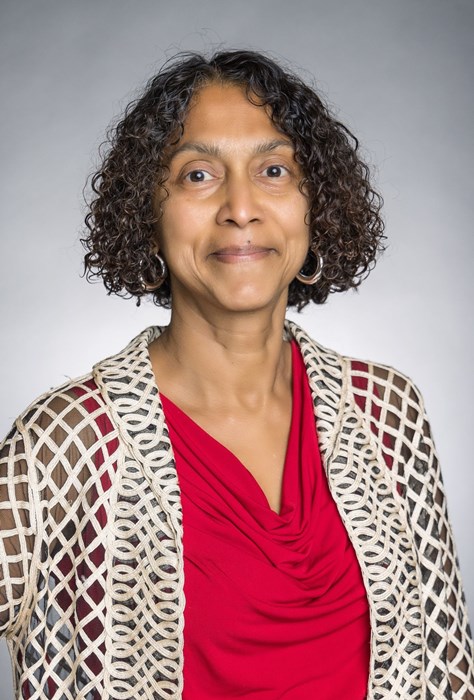 I am ecstatic to be nominated to serve as the President-elect of APPAM, an organization I have gained tremendously from participating in for over two decades. I’m looking forward to working with the policy council and the amazing staff at APPAM to serve the association’s membership through the activities of the annual conference as well as everything APPAM does for us during the year. My goals are to sustain APPAM’s upward trajectory in representation and in impact on public decision making, on scholarship, and of supporting a diverse pipeline into our profession.
I am ecstatic to be nominated to serve as the President-elect of APPAM, an organization I have gained tremendously from participating in for over two decades. I’m looking forward to working with the policy council and the amazing staff at APPAM to serve the association’s membership through the activities of the annual conference as well as everything APPAM does for us during the year. My goals are to sustain APPAM’s upward trajectory in representation and in impact on public decision making, on scholarship, and of supporting a diverse pipeline into our profession.
Outside of APPAM, I serve as a faculty member at the O’Neill School of Public and Environmental Affairs at Indiana University (IU). At IU, I hold the titles of O’Neill Chair, Distinguished Professor, Herman Wells Professor, and Associate Vice Provost for Health Sciences. Outside of IU, I am an elected member of the National Academy of Medicine. In national service roles, I am a health advisor to the Congressional Budget Office, Editor of Journal of Health Economics (JHE), co-editor of Journal of Human Resources (JHR), and I am just finishing my 3-year term in presidential leadership at the American Society of Health Economists (ASHEcon).
In my experience, there’s a very special role APPAM plays in bringing researchers and practitioners together. In the past, I have been fortunate to be a member and then Vice President of the APPAM Policy Council, co-Editor of JPAM, a member of the Nominations committee, chair of the Kershaw award committee, and on several program committees. I now look forward to my new role in the leadership team as APPAM continues to forge closer connections and meaningful discourse for all its members.
Vice President Nominees
One will be elected; serves a 2-year term; there are two Vice Presidents on APPAM's Executive Committee and Policy Council, serving staggered terms.
Sanya Carley, University of Pennsylvania
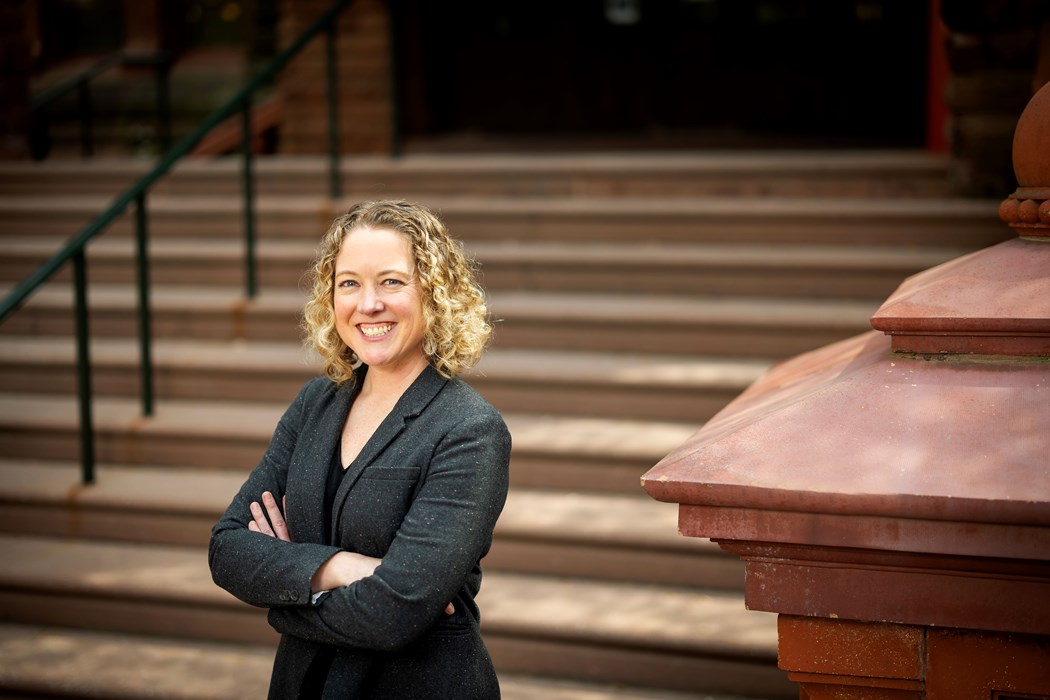
I am excited by the prospect of serving as an APPAM Vice President and am thankful for your consideration. Efforts that I would especially prioritize in this role include expanding options for cross-disciplinary topics and scholars; continuing to foster engagement of members across sectors; continuing to diversify the APPAM membership; and further supporting younger scholars and practitioners in APPAM activities.
Serving in leadership roles for APPAM and JPAM is something that I have cherished through the years. I have been a member for nearly two decades and have attended each conference over that time. I have served as an APPAM Treasurer, a member of several council committees, a member of several award committees, and served in the roles of program chair and reviewer, respectively, many times through the years. I also served as a managing editor and co-editor, respectively, of JPAM.
I am a Presidential Distinguished Professor of Energy Policy and City Planning at the University of Pennsylvania, where I also serve as the Mark Alan Hughes Faculty Director of the Kleinman Center for Energy Policy. I am a university fellow at Resources for the Future. In my research, I focus on energy and climate policy and energy justice. The APPAM community has recognized my scholarship and impact within these domains through the honor of the World Citizen Prize in Environmental Performance (2020) and the David N. Kershaw Award (2021).
Dave Marcotte, American University
.jpg)
I am honored to be nominated for Vice President of APPAM. I have been a proud member and devoted participant in many APPAM endeavors for decades. This includes participating in and helping organize the Fall Research Conference, spring and international conferences, serving on award committees, the Policy Council and on the editorial board of JPAM. I value doing my part but have benefitted immeasurably more than I’ve contributed due to the collective effort that has made APPAM the association it has become. Our conferences and membership grow by the year, and our intellectual and professional gravity attract new participants, perspectives, and audiences. APPAM has become the premier organization for applied researchers studying public problems and practitioners of collective solutions- crossing disciplinary and professional boundaries.
I am Professor of Public Administration and Policy and Interim Senior Associate Dean for Academic and Graduate Affairs in the School of Public Affairs at American University (AU). My research is in the areas of education, health, and economic inequality as it relates to children and families. I have been a student at three APPAM institutional members, UNC-Chapel Hill (undergrad), the Humphrey School (MPP), and the University of Maryland (PhD), and on the faculty at two others (UMBC and AU). Leadership at APPAM should continue to build community and further strengthen our reputation as the conduit for evidence-based policy and management solutions. I hope my experiences throughout a career of participating in and benefitting from APPAM will help me contribute to those goals.
Treasurer Nominee
One will be elected; serves a 2-year term.
Lisa Gennetian, Duke University
.jpg) What a privilege to be nominated to this year’s slate as an officer of APPAM! Serving on policy council for the past several years has elevated my enthusiasm about the significance of APPAM’s mission and impact. I’m humbled by the commitment of its leadership and the vision to cultivate an open, inclusive, equitable, sustainable, and transformational professional home for scholars and practitioners. As a first-generation scholar, and a career juggling boundaries across disciplines and policy and practice, APPAM welcomed me. I would be honored to join its leadership team as treasurer to play a role in ensuring the fiscal health and robustness of the organization.
What a privilege to be nominated to this year’s slate as an officer of APPAM! Serving on policy council for the past several years has elevated my enthusiasm about the significance of APPAM’s mission and impact. I’m humbled by the commitment of its leadership and the vision to cultivate an open, inclusive, equitable, sustainable, and transformational professional home for scholars and practitioners. As a first-generation scholar, and a career juggling boundaries across disciplines and policy and practice, APPAM welcomed me. I would be honored to join its leadership team as treasurer to play a role in ensuring the fiscal health and robustness of the organization.
How am I qualified to be the next treasurer (you may ask)? Some might say it is because I am a trained economist. More importantly, however, is my experience. I have been privileged to be involved with dozens of big team science types of large-scale studies that draw from experts across multiple institutions and disciplinary homes with their own tailored budget and fiscal expectations and norms. Navigating the millions of dollars in research budgets and funding is no small task. Second, within a year of joining the Duke University community I was asked by the Provost office to Chair a large multi-faculty membership committee to review each interdisciplinary unit on campus, with an eye toward providing recommendations to streamline resources and adjust Provost supported budgets. This was challenging but also rewarding work with many of the committee’s recommendations now in place. Third, I have served on several non-profit boards. Fiscal health and stability is always a core concern, requiring both short-term and long-term clear-eyed strategies to withstand ebbs and flows of the availability of resources and the economic landscape.
I see APPAM as an incubator of policy and research innovation with the responsibility of inclusion. My hope is that the disciplinary diversity of my own scholarship—particularly regarding my work focused on the well-being of children, the good fortune of my collaborations across academic and nonacademic sectors, and the deep and broad experience ensuring the fiscal health of research studies and community organizations, is a strength that I can bring to catalyze positive change with a foundation of strong fiscal health for APPAM.
Sebastian Tello Trillo, University of Virginia
.jpg)
I am honored to be nominated to serve on the APPAM Policy Council. As an interdisciplinary researcher, I have always valued APPAM as a professional home that bridges research, policy, and practice. Since graduate school, I have actively participated in the Fall Research Conference—presenting, chairing, and discussing panels—and more recently, I have contributed by reviewing conference proposals and papers. These experiences have deepened my appreciation for the vital role APPAM plays in fostering connections and advancing impactful research. I am excited by the opportunity to contribute to APPAM’s growth as an equitable, accessible, and inclusive organization.
I am an associate professor of public policy and economics at the Frank Batten School of Leadership and Public Policy at the University of Virginia. My research focuses on health economics, emphasizing insurance, Medicaid, mental health, and HIV. I received my Ph.D. in Economics from Vanderbilt University. Beyond my academic work, I co-host with Alex Hollingsworth The Hidden Curriculum podcast, which highlights professional development topics that are often overlooked in formal education. I’m also a board member of EconThaki, an initiative to support students from Latin America—particularly those from disadvantaged backgrounds—in pursuing graduate education in the U.S. These efforts reflect my commitment to breaking down barriers and fostering greater inclusion in academia and beyond.
My background spans research, teaching, and mentorship, and I am committed to advancing APPAM’s mission of supporting the professional development of its members and encouraging cross-disciplinary collaboration. If elected, I hope to bring new energy to engaging the APPAM community, ensuring that processes and opportunities are accessible to all, and amplifying member feedback to enhance APPAM’s impact. Thank you for the opportunity to serve this dynamic organization!
Back to top of page.
One will be elected to serve a 4-year term.
Shaun Dougherty, Boston College
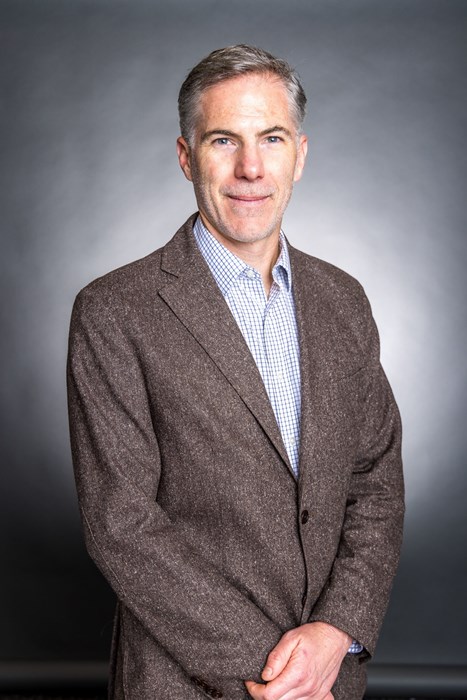
I am a Professor of Education & Policy at Boston College and a Director of the Research and Evaluation Methods program, and a longtime active member in APPAM. My research focuses on education policy analysis, the economics of education and workforce development. In particular I study programs intended to facilitate youth transition to adulthood, educational attainment, and policies intended to reduce inequality career and technical education, as well as the application of regression discontinuity research designs. In all of this work I emphasize how education and training can address human capital development as well as issues of equity related to race, class, gender, and disability. In addition to prior experience as a K12 educator and administrator, I am currently on leave to serve as a Senior Advisor in the Office of the Chief Economist at the U.S. Department of Education.
Previously I had served as an institutional representative to APPAM, and am a regular reviewer for conference program committees, a mentor to junior scholars, and a webinar participant. I have also served JPAM as an ad hoc reviewer for more than a decade.
I value the integration between academic, policy, and practitioner perspectives and manifest this through my partnership with state and local agencies to ask an answer questions of direct interest to policy and practice. I write for a variety of outlets including Brookings and the Conversation to expand the breadth of my research influence.
As a council member, I will aim to facilitate and support the integration of both academic and practice-based perspectives, to ensure that APPAM continues to realize its mission as an applied, policy relevant organization with dissemination and connection to a wide range of policy and practice outlets.
Tatiana Homonoff, New York University
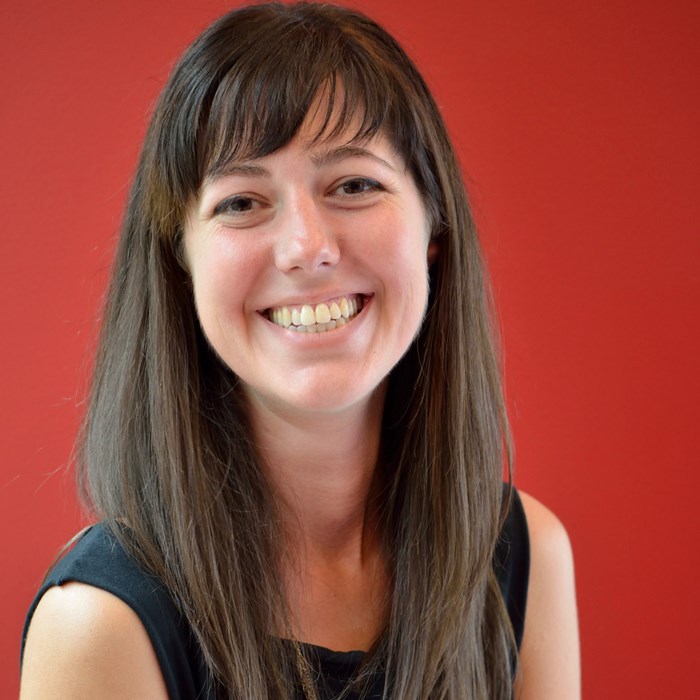
I have been a proud and active member of the APPAM community for almost two decades and I am honored to be nominated to serve on the APPAM Policy Council. I am an Associate Professor of Economics and Public Policy at NYU’s Robert F. Wagner School of Public Service. My research integrates behavioral science and public economics, with a focus on administrative burden in antipoverty programs and tax policy design.
I attended my first APPAM conference as a research analyst at MDRC to present our work on interventions to support retention and advancement in the careers of recently unemployed individuals. APPAM is one of the few conferences where I can reconnect with colleagues across every stage of my career, from friends at MDRC to former members of the White House’s Social and Behavioral Sciences Team, as well as colleagues and former students from Cornell and NYU.
One of the many things that makes APPAM such a welcoming community is its commitment to mentorship. APPAM’s Equity and Inclusion Fellowships have supported many of my students and I have had the privilege of participating in APPAM’s Mentor Matching program as well. The success of these programs has informed and inspired the design of mentoring programs that I have been involved with outside of APPAM, including early career fellowships, mentoring conferences, and mentor match programs through the National Tax Association and the American Economic Association.
I am grateful for the opportunity to give back to a community that has significantly shaped my career and humbled by the possibility of joining a leadership team that includes so many of my intellectual role models.
Michael Lens, University of California, Los Angeles
.jpg)
APPAM has been my intellectual home for 15 years and I would be honored to serve on the policy council. I am Professor of Urban Planning and Public Policy and Chair of the Undergraduate Programs at the UCLA Luskin School of Public Affairs, My professional service roles include current positions on the editorial boards of three journals and I spent a four year term on the governing board of the Association of Collegiate Schools of Planning. I have two primary goals in seeking this position. First, I hope to enhance the association's support of its diverse and talented membership, focusing on underrepresented doctoral students, junior faculty, and early career scholars outside of universities. Second, I want to leverage my experience directing undergraduate academic programs in public affairs to identify ways that the organization can support this growing area of study at the undergraduate level. I hope through my service to help strengthen APPAM's signature products and events, such as the Journal for Policy Analysis and Management and its annual conferences.
Back to top of page.
One will be elected to serve a 4-year term.
Sebawit Bishu , University of Washington
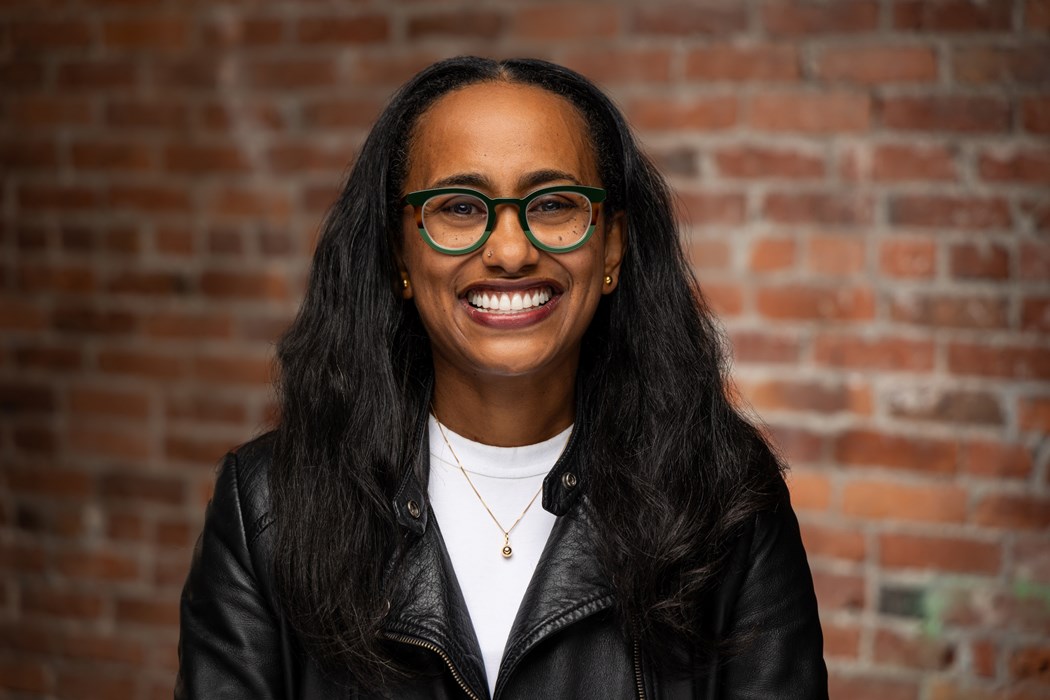 I am an Associate Professor of Public Management at the Evans School of Public Policy and Governance at the University of Washington, Seattle, and I am honored to be nominated for the APPAM Researcher in an Academic Setting (Early Career) Board role. Over the years, I have engaged with APPAM in various capacities, including reviewing conference proposals, as well as presenting, chairing, and discussing papers at the conference. I have also been privileged to receive APPAM’s Equity and Inclusion Fellowship and the 40 for 40 Fellowship for Outstanding Early Career Research Professionals. For the past several years, the APPAM community and its conference have served as my primary academic home. Having been deeply honored by these recognitions, I am now eager to give back and contribute to the broader APPAM community.
I am an Associate Professor of Public Management at the Evans School of Public Policy and Governance at the University of Washington, Seattle, and I am honored to be nominated for the APPAM Researcher in an Academic Setting (Early Career) Board role. Over the years, I have engaged with APPAM in various capacities, including reviewing conference proposals, as well as presenting, chairing, and discussing papers at the conference. I have also been privileged to receive APPAM’s Equity and Inclusion Fellowship and the 40 for 40 Fellowship for Outstanding Early Career Research Professionals. For the past several years, the APPAM community and its conference have served as my primary academic home. Having been deeply honored by these recognitions, I am now eager to give back and contribute to the broader APPAM community.
APPAM’s mission to improve public policy and management through research, scholarship, and education closely aligns with my scholarly goals and ambitions. My interest in public management research and education is deeply rooted in my lived experiences across several countries: Nigeria, Zambia, my home country Ethiopia, and, for the past 15 years, the United States. Advancing social equity is at the core of my scholarly inquiry. My research contributes to the development of public management theory and practice by exploring ways to enhance (1) equal opportunity within government, (2) government-public interactions, and (3) equitable public service delivery. I aim to use research and evidence to inform public policy and improve the delivery of public services.
In pursuing this research agenda, I have engaged with both public-facing think tanks and government organizations. I actively participate in activities that shape policy, working with organizations such as the United Nations (UN) and the United States Agency for International Development (USAID). My work focuses on integrating women and racially and ethnically marginalized populations into leadership roles, while fostering economic growth opportunities within governments in the Global South.
I bring to this position leadership experiences. Currently, I serve on the board of the Public Management Research Association (PMRA). Previously, I have been a board member for the Public Administration Theory Network and the Founding President of a local student chapter of the International City/County Management Association, among other leadership roles. With a multidisciplinary background in architecture, urban planning, and public affairs, I value integrating diverse perspectives to address governance challenges in various contexts. My experiences have enabled me to collaborate with scholars and practitioners from different fields to tackle pressing public management issues. As an emerging scholar with a broad range of lived experiences and a multidisciplinary academic background, I look forward to engaging the APPAM community in exploring innovative approaches to improving public policy and management practices across social and institutional contexts.
Sade Bonilla, University of Pennsylvania
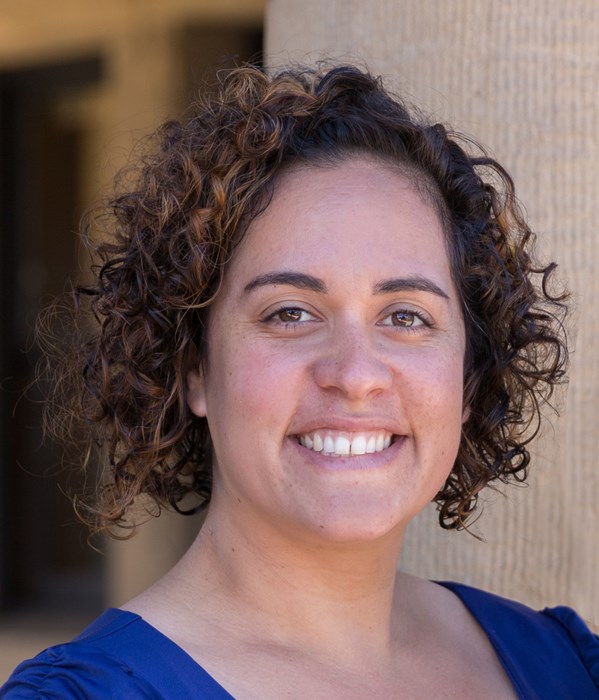
I would be honored to serve on the APPAM Policy Council as an early career representative.
I am an Assistant Professor of Education Policy at the University of Pennsylvania’s Graduate School of Education, where my research focuses on educational equity, policy evaluation, and the intersection of education and economic opportunity. I hold a Ph.D. in the Economics of Education from Stanford University, and my work bridges rigorous quantitative methods with a commitment to practical impact, centering underserved communities in the design and implementation of educational policies and programs. I bring a track record of working in partnership with practitioners to address critical questions that inform policymaking, with a focus on explicit design choices that promote improved outcomes.
My leadership and engagement with APPAM reflect my dedicated to the organization and its mission. As an inaugural Equity and Inclusion Fellow in 2016, I have since served as conference abstract reviewer, an Equity and Inclusion Fellowship application reviewer, and as co-chair for the Education Section of the 2024 Fall conference. These roles have given me valuable insights into APPAM’s operations and opportunities to elevate voices that reflect the full diversity of our field—diversity in research methods, disciplines, institutional affiliations, professional roles, career stages, and lived experiences.
As a member of the Policy Council, I would advocate for actional initiatives to strengthen the pipeline of scholars with varied perspectives and backgrounds, fostering greater collaboration between the researchers and policymakers, particularly at the state level. I am committed to supporting ongoing efforts like the Equity & Inclusion Fellowship and expanding initiatives to attract promising undergraduate students while supporting current graduate students through the advancement of mentorship programs, professional development opportunities, and platforms for sharing innovative work. Through these efforts, I aim to ensure that APPAM continues to serve as a leader in advancing impactful public policy research and practice.
Agustina Laurito, University of Illinois Chicago
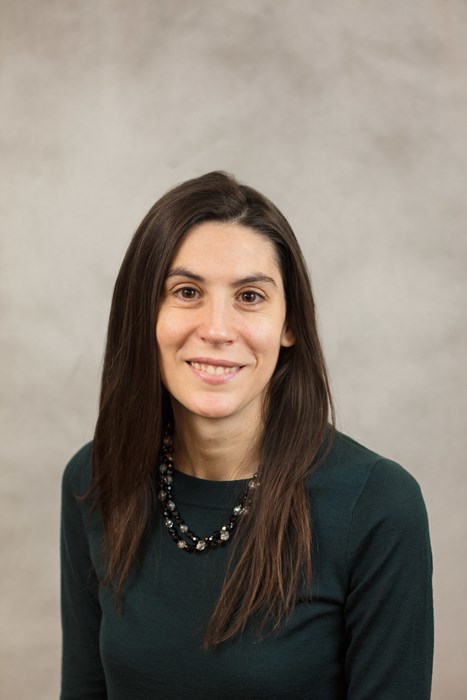
I am very excited to be considered for APPAM’s Policy Council. I have been a member of APPAM for a decade (since graduate school) and consider it my intellectual home. Over the years, I have had the opportunity to present my work during the Fall research conference, I have reviewed conference abstracts, organized sessions, and served as discussant on several panels. In addition, I have consistently participated in APPAM’s mentoring program. I was a mentee my last year of graduate school, and I have served as mentor for the past few years.
I am currently an Assistant Professor in the Department of Public Policy, Management, and Analytics at the University of Illinois Chicago (UIC). I conduct interdisciplinary research at the intersection of social policy, education, and health in the United States (U.S.) and Latin America, where I was born and grew up. My work also tries to identify the factors that affect the outcomes and wellbeing of immigrants living in the U.S.
As a policy scholar, I have always valued APPAM for the variety of policy areas and topics it covers, its embrace of interdisciplinary work, as well as its engagement with practitioners. Should I be elected to the Policy Council, I will work to continue fostering an organization that is diverse, welcoming and inclusive, and focused on rigorous policy and public management research from a variety of theoretical and methodological approaches. I would also like to help grow APPAM’s engagement with researchers and practitioners who do international policy work in a variety of contexts, and in low- and middle-income countries in particular. I’d be honored to have the opportunity to be part of APPAM’s leadership in the coming years.
Back to top of page.
One will be elected for a 4-year term.
S. Michael Gaddis, NWEA (Education Nonprofit)
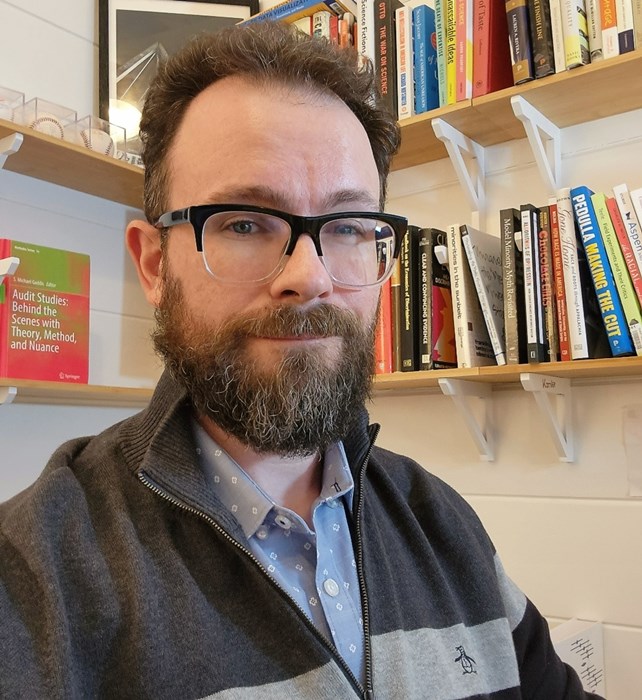
I am a Senior Research Scientist at NWEA and a former Associate Professor of Sociology at UCLA. I am a methodologist with expertise in survey and experimental design who focuses on sharpening our understanding of discrimination across multiple dimensions. I do this through a research agenda that rigorously documents inequality in empirical work and provides new methodological tools to others who have the power to reduce discrimination. I have worked with the Department of Justice’s Civil Rights Division and other partners on improving practice and policy to reduce discrimination in housing. I strongly believe that social scientists should not simply illuminate the problems and dynamics of society but also provide evidence on how to improve the lives of everyone and help organizations apply solutions for change.
I first became an APPAM member in 2010 to attend the annual conference as a young graduate student. I found the smaller format of the conference to be more welcoming and filled with more interesting research than other larger disciplinary conferences. I initially several scholars across different disciplines who were similarly committed to tackling social problems beyond putting empirical research out into the world and hoping for the best. Since then, I have regularly attended the fall conferences, presented my research, organized and chaired sessions, served as a discussant, and participated in workshops. Throughout this time, I have made some of my strongest academic friendships and even met a few co-authors along the way. As a first-generation college attendee from a working-class background, the diversity and acceptance of the APPAM membership have been important to me.
Overall, APPAM has significantly impacted my career by providing me with opportunities to network beyond my discipline, present my work to a larger and more diverse audience, and embark on interdisciplinary research projects with new collaborators. I want to support and give back to the organization by serving on the policy council. I am excited about building on the success of APPAM’s inclusive community. I look forward to implementing new ways of reaching out to scholars from first-generation and working-class backgrounds and those at non-academic institutions to introduce them to the APPAM family. Moreover, I believe that policy council members can work to help APPAM bridge gaps between academics, professionals, and policymakers through new ideas for workshops and networking events. I aim to increase the reach and value of APPAM by contributing to these and other important issues.
Tara Watson, Brookings Institution
.jpg) It is an honor to be nominated to serve on the APPAM Policy Council. Though APPAM started as a professional association for graduate schools of public policy and management, it plays a key role in fostering communication and collaboration across researchers and practitioners. My own scholarship focuses on immigration and the U.S. safety net, two areas where cross-sector conversations are critical. As a representative from a non-academic setting on the Council, I would aim to continue the organization’s efforts to these build these bridges, which I believe improve scholarship, policy, and implementation. I would also like to continue to strengthen APPAM’s role in fostering professional success for those from a broad range of backgrounds and perspectives.
It is an honor to be nominated to serve on the APPAM Policy Council. Though APPAM started as a professional association for graduate schools of public policy and management, it plays a key role in fostering communication and collaboration across researchers and practitioners. My own scholarship focuses on immigration and the U.S. safety net, two areas where cross-sector conversations are critical. As a representative from a non-academic setting on the Council, I would aim to continue the organization’s efforts to these build these bridges, which I believe improve scholarship, policy, and implementation. I would also like to continue to strengthen APPAM’s role in fostering professional success for those from a broad range of backgrounds and perspectives.
I have worked at the intersection of research and policy across a variety of settings. I currently direct the Brookings Center for Economic Security and Opportunity, which emphasizes data-driven scholarship on U.S. social policy issues, and I am Brookings’ institutional representative to APPAM. In 2015-2016, I served as Deputy Assistant Secretary for Microeconomic Policy at the U.S. Treasury department. I previously spent nearly two decades in the Economics Department at Williams College, where I chaired the Faculty Steering Committee and the Program in Public Health. I have learned a lot from time in interdisciplinary settings such as the Robert Wood Johnson Scholars in Health Policy Research program at the University of Michigan, the Center for Research on Child Wellbeing at Princeton University, and a multidisciplinary program on inequality while a Ph.D. student at Harvard. I bring a collaborative, listening-oriented, and pragmatic approach and would value the opportunity to serve the Council.
Back to top of page.
Institutional Member Representative
One will be elected for a 4-year term.
**Please note: only institutional members vote for the institutional member representative on the Policy Council.**
Lily Hsueh, Arizona State University
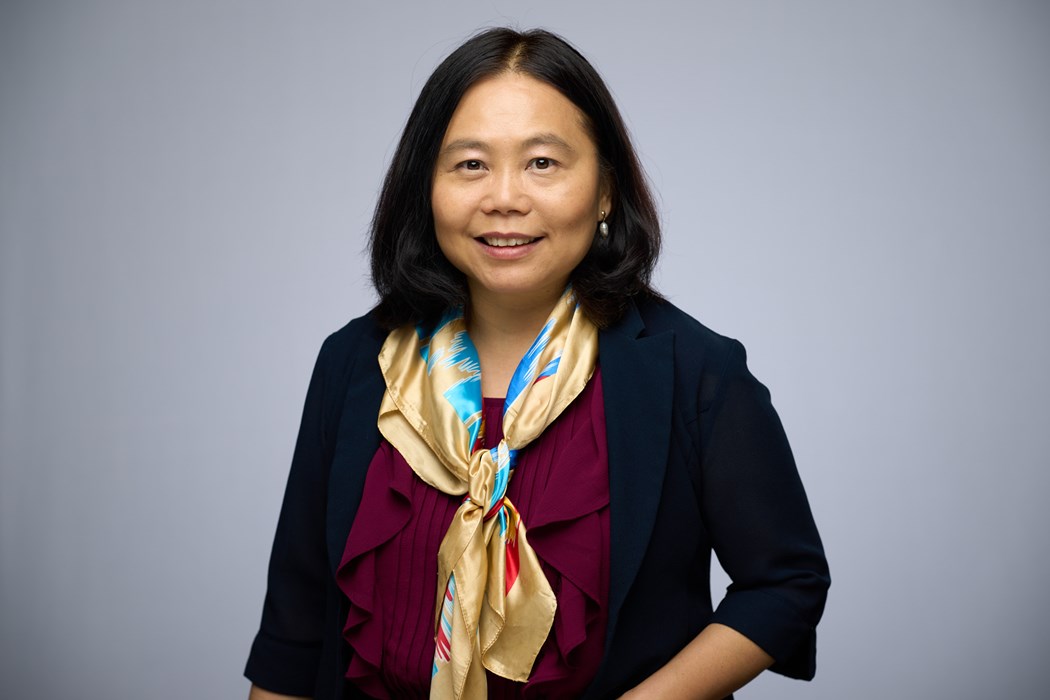
It is an honor to be nominated to serve on APPAM’s Policy Council as a representative of our institutional members. I am currently the institutional representative for Arizona State University, where I serve as the Chair of Inclusive Strategies and Design and as an Associate Professor of Public Policy and Economics at the ASU School of Public Affairs. I am a recipient of multiple teaching awards and the author of Corporations at Climate Crossroads (MIT Press, forthcoming), which bridges economics, political science, and management to examine how companies respond to climate change and how governments and global governance institutions shape that response. To learn more about my research, please visit www.lilyhsueh.com.
As a problem-driven public policy scholar and economist working at the nexuses of disciplines and fields, APPAM has become a professional home base for me since I presented at APPAM’s annual Fall Research Conference as a second-year doctoral student. I was thrilled to receive positive and constructive feedback from the panel chair, an esteemed senior professor and environmental policy scholar whose seminal research I greatly admire to this day. But, as importantly, what I remember is that after our session, we joined the rest of our panel for a meal together. I was struck by how students easily mingled with professors and researchers from government and think tanks. Over the years, I have found genuine professional camaraderie at APPAM and have collaborated with colleagues across policy areas from both academic and nonacademic research institutions.
In the past decade and half, in addition to presenting my own research, I’ve organized panels and served as a discussant and a panel chair numerous times. Moreover, I frequently refereed for JPAM, and served as a program committee reviewer of conference submissions. In 2020, I had the pleasure of serving as a program committee co-chair for the Natural Resource, Energy, and Environmental Policy area during the height of the COVID-19 pandemic. My co-chair Varun Rai and I worked with the amazing and dedicated APPAM staff to take the Fall Research Conference fully virtual. We assembled a program that reflected APPAM’s and our shared value and vision for excellence in diversity, inclusion, and equity on multiple dimensions—from the makeup of panel chairs, discussants, and presenters to research themes, subjects, and methodologies. To pay forward the mentoring I have received as a junior scholar, I’ve served as a mentor to doctoral students and early career professionals through APPAM’s Mentor Matching Program, providing guidance and feedback on research and advice on academic and professional norms, practices, and the job market.
If elected to the Policy Council, I will continue to add my perspective from ASU, a large public research university that shares many of the same values as APPAM, such as the dedication to advance research, improve communities, and contribute to public policy. I am excited about the opportunity to collaborate with the APPAM leadership and institutional members to work alongside policymakers and communities to rigorously evaluate, create, and elevate practical solutions to some of society’s toughest problems. We need to understand what skills and knowledge future policy researchers and practitioners need, drawing on new technologies, methods, and ideas with boldness and a critical mind and strategic thought. And we must strive continuously to listen and create inclusive and equitable spaces for policymakers, scholars, and practitioners of all backgrounds. Finally, in the age of climate change and artificial intelligence, it is important to work across disciplines, policy areas, and sectors. I know no other professional associations better suited for this cross-cutting agenda and undertaking than APPAM. I would be honored to serve on APPAM’s Policy Council.
Dan Mallinson, Penn State University, Harrisburg

I would be honored to serve on the Policy Council as a representative of our Institutional members. I am an Associate Professor of Public Policy and Administration at Penn State Harrisburg (PSH) and the Program Chair for the Masters in Public Administration. I teach undergraduate, masters, and doctoral courses in public policy process, policy analysis, and research methods. My research focuses on policy process theory, cannabis policy, and energy policy.
In terms of my involvement with APPAM, I have served as PSH’s inaugural Institutional Representative since 2019. In 2022, I led Penn State Harrisburg’s APPAM-sponsored Public Policy Camp. I have also been involved in conference abstract reviews for the Fall Conference and Student Research Conference. In 2018, I was selected for the 40 for 40 Fellowship for Outstanding Early Career Research Professionals to celebrate the organization’s 40th annual fall research conference.
Serving on the Policy Council would be a privilege. I have been active as an institutional representative in promoting APPAM programming to our students at all levels. The Association has provided them opportunities to develop as scholars, including presenting research, chairing discussions, receiving fellowships, and receiving valuable feedback on their work. I regularly suggest the Fall Conference as a great opportunity to build a profile in the policy community. Graduate education and care for graduate students would be areas of focus for me if I serve on the council. I was part of an editorial team that produced the American Political Science Association’s Strategies for Navigating Graduate School and Beyond (https://apsanet.org/gradschool) and I would love to encourage APPAM to consider how it can increase its support for current and future graduate students who are the future of our profession. I also look forward to representing the issues and concerns raised by my fellow institutional representatives to the council.
Back to top of page.